The Department of History and its researchers are connected to a large number of other academic institutions at RUB. These are, first of all, the sister institutes in the Faculty of History, Archaeological Sciences and Art History. The Institute also maintains its own research facilities and has special links with those in other faculties. Some of them are presented here.
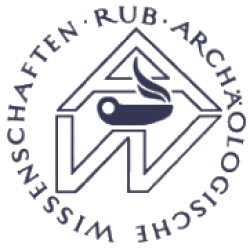
The Institute of Archaeological Sciences was founded from the subjects of Classical Archaeology and Prehistory and Early History. This unique combination of the two sister disciplines forms the heart of the Institute. The close networking with its cooperation partners, such as the German Mining Museum Bochum, also enables the Institute to offer archaeometry as a focus of teaching.

In research and teaching, the Institute of Art History at Ruhr-Universität Bochum is dedicated to the visual arts of the Western world in all their breadth, from late antiquity to the present day. Since its foundation in 1965 under Max Imdahl (1925-1988), it has placed particular emphasis on the constitution, emergence and development of aesthetic modernism and its historical preconditions. In keeping with this tradition, it still plays a decisive role in anchoring contemporary art in the academic and overall cultural context throughout Germany.

The Centre for Mediterranean Studies connects Mediterranean research from all disciplines and epoches in the German-speaking countries. In contrast to the "Mediterranisms" of the colonial and the cold war era, it does not postulate an entity, continuity, specificity or singularity of the region. Instead, it conceives the Mediterranean region as an African, Asian and European contact zone, which is comparable to and was intertwined with other fluvial, maritime and terrestrial spaces of interaction.
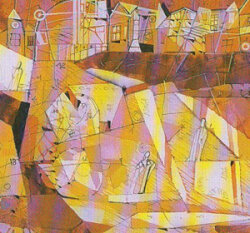
The Institute for Diaspora and Genocide Studies was founded with the aim of combining research on the causes and structures of collective, state-based persecution and violence with a pointed research on the individual, social and political consequences of collective violence.

The Institute for Social Movements is a central research unit of the Ruhr-University Bochum. The Institute is specialised in research and teaching on social movements by regular courses, teaching units, workshops, and research projects. Although there is a focus on the Ruhr region, social movements, past and present, are examined comparatively. Based in many international links, the Institute is part of an European research community. Therefore, the Institute is also participating in European-wide educational programmes.
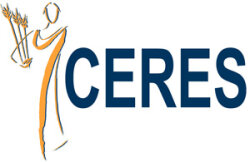
The Center for Religious Studies (CERES) is one of Germany’s leading institutions in the field of the academic study of religion (German: Religionswissenschaft). Both the independence of the center within the university structure as well as its close cooperations with other disciplines ensures an indepth and wide-ranging scholarly focus on religions.

Global changes such as the transformation of political cultures, social inequalities, the world of media, art and culture, the world of work, digitalisation, worldwide migration movements and many other factors act as driving forces for gender relations, which are also changing, quite dramatically in parts. The complex discourses and controversies associated with the category of gender pose a particular challenge to science, business, administration, culture, politics and the church; this explains the growing need for scientific reflection and the transfer of gender knowledge.
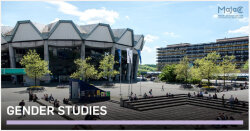
The subject of Gender Studies can already look back on a long history. In the winter semester 2005/6, Gender Studies was launched at the RUB as part of the 2-subject Master's programme. Today, the programme can be studied at the RUB both as a 1-subject and as a 2-subject Master's programme, and the 1-subject Master's programme even offers the possibility of completing a double degree, i.e. the acquisition of two official degrees at the RUB and the University of Graz, Austria. Since the founding of the Marie Jahoda Center for International Gender Studies in 2019, the two Gender Studies programmes have formed one of the three pillars of the center, alongside the Gender Lab and Gender in Society.

The task of the Martin Opitz Library (affiliated institute of the Ruhr University Bochum) is to ensure a sustainable supply of literature on German history and culture in Eastern Europe by safeguarding its holdings, collection, cataloguing and communication.
Under the motto ‘Books build bridges’, the Martin Opitz Library Foundation helps to promote dialogue between East and West. With its range of literature, it provides information about the past and present - information as an indispensable basis for the opportunity to overcome fronts and prejudices.
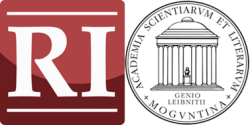
The REGESTA IMPERII (RI) chronologically record all activities evidenced by charters and other sources of the Roman-German kings and emperors from the Carolingians up to Maximilian I (ca. 751-1519) as well as of the popes of the early Middle Ages and High Middle Ages in the form of German “Regesten” (abstracts).
The "Deutsche Kommission für die Bearbeitung der Regesta Imperii e. V." has been in charge of the fundamental work since 1967 - since 1980 as a long-term project of the Academy of Sciences and Literature in Mainz. In 2014 the investors granted the extension of the project until 2033. Nowadays the 14 subprojects are operated by seven workplaces in Germany.
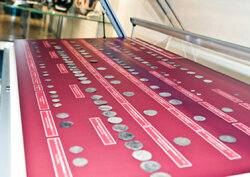
As part of its art collections, the Ruhr University Bochum has a remarkable collection of around 3,400 coins, which is looked after by the Department of Ancient History at the Institute of History and used for the training of future historians.